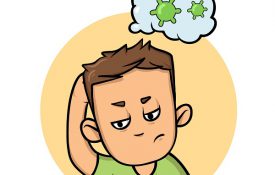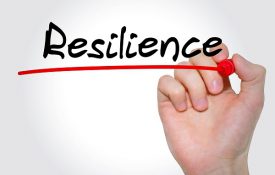-

APS Backgrounder Series: Psychological Science and COVID-19: Social Impact on Children
Expert commentary from Vanessa LoBue on emotional development and the effect of emotion and experience on perception and learning. [April 1, 2020]
-
In Negotiations, Givers Are Smarter Than Takers
APS Member/Author: Adam Grant When the pie seems fixed, it’s common to panic and treat resources as scarce. In crisis, we often do whatever it takes to protect ourselves. That’s especially clear today: In the past few weeks, we’ve seen hoarders collect thousands of bottles of hand sanitizer, and spreaders ignore warnings to maintain physical distance to avoid infecting vulnerable groups. We’ve watched policymakers withhold emergency funds. “It’s give and take, but it’s got to be mostly take,” President Trump said in 2015, summing up his negotiation philosophy. “You got to mostly take.” That was the art of the deal: Be a taker.
-

New Research in Psychological Science
A sample of research on honesty, the scent of a loved one and sleep efficiency, and contextual effects on shape perception.
-

APS Backgrounder Series: Psychological Science and COVID-19: Remaining Resilient During a Pandemic
Expert commentary from APS Fellow George A. Bonanno, on the topic of resilience at a time of loss and trauma. [March 31, 2020]
-
Meet the Psychologist Exploring Unconscious Bias—and Its Tragic Consequences For Society
When Jennifer Eberhardt appeared on The Daily Show with Trevor Noah in April 2019, she had a hard time keeping a straight face. But some of the laughs were painful. Discussing unconscious racial bias, which she has studied for years, the Stanford University psychologist mentioned the “other-race effect,” in which people have trouble recognizing faces of other racial groups. Criminals have learned to exploit the effect, she told Noah. In Oakland, California, a gang of black teenagers caused a mini–crime wave of purse snatchings among middle-aged women in Chinatown.
-
Trump Turns a Crisis Into His New Nightly TV Show
To anybody suddenly tuning into the president’s news conference this Monday evening, it might have seemed like the leader of the free world was channeling an off-hours televangelist, taking advantage of a pandemic to offera hazy tale of a miraculous cure. “… a gentleman,” Donald Trump intoned from inside the White House, invoking anantimalarial remedy calledhydroxychloroquine, “they thought he was not going to make it. He said goodbye to his family. They had given him the drug just a little while before, but he thought it was over. His family thought he was going to die. And a number of hours later, he woke up, felt good. Then he woke up again, and he felt really good.

